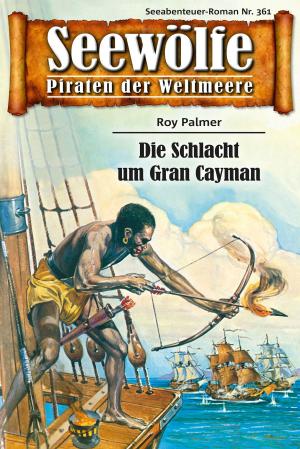| Author: | David McWellan | ISBN: | 9780463395325 |
| Publisher: | David McWellan | Publication: | April 25, 2018 |
| Imprint: | Smashwords Edition | Language: | English |
| Author: | David McWellan |
| ISBN: | 9780463395325 |
| Publisher: | David McWellan |
| Publication: | April 25, 2018 |
| Imprint: | Smashwords Edition |
| Language: | English |
THE VICTORY: LONG SYNOPSIS
A silence that awakens Marguerite Low precedes the violent actions that liberate Paris. Although eager to join in the street celebrations, Marguerite is dissuaded by the glares and stares of neighbors. Her husband Jacques, who left Paris, is suspected of having been a collaborator with the German occupiers.
After liberation, the Free French Forces take Marguerite into custody and question her in order to learn Jacques' whereabouts. She tells them he left for Prague in March 1944. "What good is revenge?" she pleads. The response: "There is no thought of revenge. Your husband worked with the German authorities in order to supply information to the allies. He is a recognized hero of the French Resistance."
After recovering from the revelation that she had erred in believing Jacques had been disloyal to France, Marguerite receives another shock ̶ the husband she had is not the husband she knew ̶ he lived a covert life beside her. Her total devotion to those she loves, combined with her need to be loved, overcomes her feelings of having been betrayed. Marguerite convinces the French government to allow her to journey to Prague to search for her missing husband. The artistic Marguerite struggles in the post-war era of sinister relations, political duplicity, and bureaucratic mix-ups. Other persons who want to locate Jacques Low track her activities. After months of difficult investigation and government ineptness, one of Jacques' close friends, a Basque refugee from the Spanish Civil War, steers her to a major revelation: The Russians captured a wounded Jacques Low in a German military hospital. If he is alive, he is probably in a Russian prison camp.
The French government fears that a direct solicitation for the whereabouts of Jacques Low might disclose to the Soviets they hold a person who has military secrets. The diplomatic service reluctantly permits Marguerite to take a position at the French embassy in Moscow. Using her diplomatic disguise to meet Soviet officials, she endeavors to locate her husband and gains the support from Marcowitz, a high-ranking Soviet official, who is entranced with Marguerite. The two persons meet often, exchange memories of their pasts and share experiences in the present. When their relationship blossoms into tender touches and finally into love, Marguerite realizes she has complicated the situation by succumbing to the one person who can assist in freeing her husband. Adding to her dilemma is that Marcowitz has become jealous, and knowing he will lose Marguerite to a liberated husband, falsely informs her that he cannot locate Jacques. In a last minute gesture, the Soviet official reveals vital information on Jacques Low's incarceration to a compatriot of Marguerite. In a complicated scheme, arrangements allow her husband to escape from the Soviet prison.
Jacques and his wife settle in Marguerite's childhood village, where they live a quiet life. Marguerite is content, but remains subtly bothered that she might not have been told the entire story of Jacques' liberation. She reflects on Marcowitz, the Russian official who had assisted her. Years later, a Soviet intelligence agent, whom Marguerite knew in Moscow, arrives in France. He relates to Marguerite the facts, reasons and identities of the persons most connected with Jacques Low's release. The agent also informs her of the fate of Marcowitz, the Soviet official she had briefly loved. The revelations surprise and bewilder Marguerite, but also comfort her. Her psyche demanded the truth of the events in the Soviet Union and her emotions required closure to her relationship with Marcowitz. Truth and reality bring the closure.
THE VICTORY: LONG SYNOPSIS
A silence that awakens Marguerite Low precedes the violent actions that liberate Paris. Although eager to join in the street celebrations, Marguerite is dissuaded by the glares and stares of neighbors. Her husband Jacques, who left Paris, is suspected of having been a collaborator with the German occupiers.
After liberation, the Free French Forces take Marguerite into custody and question her in order to learn Jacques' whereabouts. She tells them he left for Prague in March 1944. "What good is revenge?" she pleads. The response: "There is no thought of revenge. Your husband worked with the German authorities in order to supply information to the allies. He is a recognized hero of the French Resistance."
After recovering from the revelation that she had erred in believing Jacques had been disloyal to France, Marguerite receives another shock ̶ the husband she had is not the husband she knew ̶ he lived a covert life beside her. Her total devotion to those she loves, combined with her need to be loved, overcomes her feelings of having been betrayed. Marguerite convinces the French government to allow her to journey to Prague to search for her missing husband. The artistic Marguerite struggles in the post-war era of sinister relations, political duplicity, and bureaucratic mix-ups. Other persons who want to locate Jacques Low track her activities. After months of difficult investigation and government ineptness, one of Jacques' close friends, a Basque refugee from the Spanish Civil War, steers her to a major revelation: The Russians captured a wounded Jacques Low in a German military hospital. If he is alive, he is probably in a Russian prison camp.
The French government fears that a direct solicitation for the whereabouts of Jacques Low might disclose to the Soviets they hold a person who has military secrets. The diplomatic service reluctantly permits Marguerite to take a position at the French embassy in Moscow. Using her diplomatic disguise to meet Soviet officials, she endeavors to locate her husband and gains the support from Marcowitz, a high-ranking Soviet official, who is entranced with Marguerite. The two persons meet often, exchange memories of their pasts and share experiences in the present. When their relationship blossoms into tender touches and finally into love, Marguerite realizes she has complicated the situation by succumbing to the one person who can assist in freeing her husband. Adding to her dilemma is that Marcowitz has become jealous, and knowing he will lose Marguerite to a liberated husband, falsely informs her that he cannot locate Jacques. In a last minute gesture, the Soviet official reveals vital information on Jacques Low's incarceration to a compatriot of Marguerite. In a complicated scheme, arrangements allow her husband to escape from the Soviet prison.
Jacques and his wife settle in Marguerite's childhood village, where they live a quiet life. Marguerite is content, but remains subtly bothered that she might not have been told the entire story of Jacques' liberation. She reflects on Marcowitz, the Russian official who had assisted her. Years later, a Soviet intelligence agent, whom Marguerite knew in Moscow, arrives in France. He relates to Marguerite the facts, reasons and identities of the persons most connected with Jacques Low's release. The agent also informs her of the fate of Marcowitz, the Soviet official she had briefly loved. The revelations surprise and bewilder Marguerite, but also comfort her. Her psyche demanded the truth of the events in the Soviet Union and her emotions required closure to her relationship with Marcowitz. Truth and reality bring the closure.















